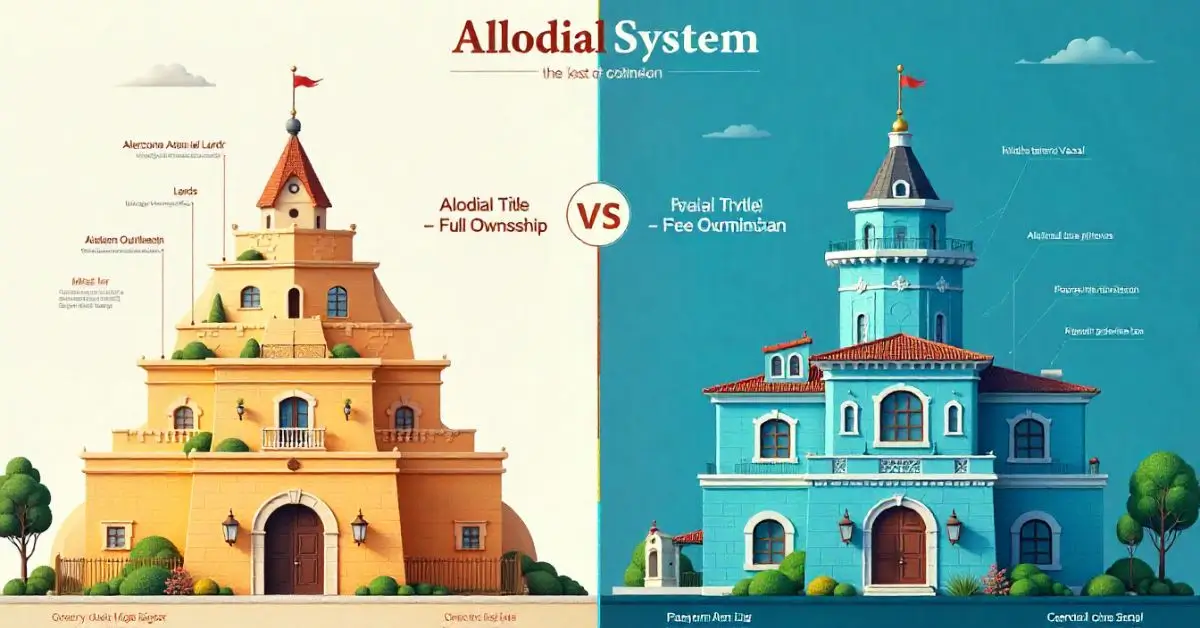BUSINESS
Understanding Ticker XIV: A Comprehensive Guide for Investors

The ticker XIV once captivated many investors seeking exposure to market volatility, but understanding what it truly represents requires a deep dive into its structure, risks, and historical context. In this article, we explore the intricacies of ticker XIV, unravel its purpose, evaluate its performance, and provide actionable insights for anyone curious about this unique financial instrument.
What Is Ticker XIV?
Ticker XIV was an exchange-traded note (ETN) designed to provide investors with inverse exposure to the volatility index, commonly known as the VIX. The VIX measures the market’s expectation of near-term volatility, often referred to as the “fear gauge” of Wall Street. Essentially, ticker XIV allowed investors to bet against market volatility rising, profiting when the volatility index declined.
Created to capitalize on the general tendency of volatility to revert to lower levels after spikes, ticker XIV became a popular tool for traders seeking short-term gains during stable or rising market conditions. However, it’s crucial to understand that ticker XIV was not a typical stock or ETF—it was an ETN backed by the issuer’s credit, introducing additional risk factors.
How Did Ticker XIV Work?
Ticker XIV tracked the inverse performance of VIX futures rather than the VIX index itself. VIX futures often differ from the spot VIX value, especially during periods of market stress. This difference is known as the futures curve and can be in contango or backwardation, impacting returns significantly.
When the VIX futures declined, ticker XIV increased in value, providing positive returns to investors. Conversely, sharp rises in volatility caused ticker XIV to plummet, sometimes dramatically. This characteristic made ticker XIV highly sensitive to sudden market shocks, which many underestimated.
The Appeal of Ticker XIV for Investors
The primary attraction of ticker XIV was its potential to generate outsized returns during times of low market volatility. Many investors saw it as an efficient way to profit from the general calmness that often follows market turmoil. Additionally, ticker XIV’s low cost and easy access through brokerage accounts made it appealing for both retail and institutional traders.
Moreover, ticker XIV allowed for tactical allocation within a diversified portfolio. By balancing volatility exposure with traditional equities and bonds, investors sought to improve risk-adjusted returns, leveraging the instrument’s unique inverse correlation to market fear.
The Risks Behind Ticker XIV
Despite its advantages, ticker XIV carried significant risks that proved fatal for many investors. Since it provided inverse exposure to volatility, rapid spikes in the VIX could cause losses to accelerate exponentially. During extreme market events, the losses could wipe out a significant portion or even the entirety of an investment.
The most notorious example occurred in February 2018 when an unexpected surge in volatility caused ticker XIV to collapse by over 90% in a single day, leading to its ultimate termination. This event highlighted the dangers of using leveraged or inverse products without fully understanding the underlying mechanisms.
Another risk stemmed from the fact that ticker XIV tracked VIX futures rather than the index itself. Futures pricing dynamics, including contango and backwardation, could erode gains or exacerbate losses depending on market conditions. This made timing and market insight crucial for successful trading.
Comparing Ticker XIV with Other Volatility Instruments
To provide a clearer picture, the table below compares ticker XIV with other common volatility-related instruments based on five key features: cost, efficiency, ease of use, scalability, and benefits.
| Feature | Ticker XIV (ETN) | VIX ETFs | VIX Futures | Inverse ETFs | Options on VIX |
|---|---|---|---|---|---|
| Cost | Low to moderate | Moderate | High (fees & margin) | Moderate to high | Variable (premiums) |
| Efficiency | High in stable markets | Moderate | High but complex | Moderate | High but complex |
| Ease of Use | Very easy (traded like stock) | Easy | Difficult (requires futures account) | Easy | Moderate to difficult |
| Scalability | Moderate | Moderate | High | Moderate | High |
| Benefits | Direct inverse exposure to VIX futures | Direct VIX exposure | Professional volatility trading | Hedging volatility | Flexible risk management |
This comparison illustrates that while ticker XIV offered a unique balance of accessibility and inverse exposure, it was best suited for sophisticated investors aware of its limitations and potential dangers.
Practical Considerations When Dealing With Ticker XIV
Before engaging with ticker XIV or similar instruments, investors should ask themselves several critical questions:
-
What is my risk tolerance? Due to its volatility sensitivity, ticker XIV is inappropriate for conservative portfolios or long-term holdings.
-
Do I understand volatility futures? Success depends heavily on understanding the mechanics behind VIX futures pricing.
-
What is my investment horizon? Ticker XIV was designed for short-term trading, not buy-and-hold strategies.
-
Am I prepared for sudden losses? Investors should be ready for the possibility of rapid, severe losses.
-
Is this part of a diversified strategy? Utilizing ticker XIV as a tactical tool alongside other assets helps mitigate risks.
Addressing these questions helps safeguard against emotional decision-making driven by fear or greed, which often undermines trading success.
Expert Insights on Using Volatility Products Like Ticker XIV
Market professionals consistently emphasize caution when using volatility-based ETNs and ETFs. The key insight is that these products are not meant for passive investors but for active traders who can monitor positions closely and exit swiftly when conditions change.
Experts recommend limiting exposure to such instruments to a small portion of an overall portfolio and using stop-loss mechanisms to prevent catastrophic losses. They also advise understanding the underlying VIX futures curve dynamics, as misjudging these can lead to unexpected outcomes.
Furthermore, expert consensus suggests investors consider alternatives for volatility exposure, such as VIX options or futures contracts, which offer more precise control but require higher sophistication and capital.
Lessons From the Demise of Ticker XIV
Ticker XIV’s abrupt termination in early 2018 served as a cautionary tale in financial markets. The product’s collapse stemmed from a sudden spike in the VIX, triggered by rapid market corrections. This event highlighted the risks inherent in leveraged and inverse volatility instruments, especially those tied to futures markets.
Investors learned that chasing yield in products like ticker XIV can lead to significant emotional and financial damage if not approached with discipline. It underscored the importance of understanding product structures, market risks, and maintaining realistic expectations.
What Replaced Ticker XIV?
Following ticker XIV’s closure, several new volatility products emerged with structural improvements intended to mitigate extreme risk. These newer offerings often feature built-in protections such as daily rebalancing or volatility caps, but none eliminate risk entirely.
Investors interested in volatility trading today must carefully review product specifications and consider consulting financial professionals to choose tools aligned with their risk profile and objectives.
How to Approach Volatility Trading Safely
Trading volatility can offer lucrative opportunities but demands rigorous preparation. Here are some actionable strategies to manage risks effectively:
-
Use position sizing: Limit the amount allocated to volatility instruments relative to your overall portfolio.
-
Implement stop-loss orders: Protect capital by exiting losing positions early.
-
Stay informed: Monitor market conditions and understand economic events that could trigger volatility.
-
Educate yourself: Continuously learn about volatility products and futures market behavior.
-
Diversify exposure: Avoid concentrated bets by balancing volatility trades with traditional assets.
By following these principles, investors can approach volatility trading with greater confidence and resilience.
Conclusion: Reflecting on Ticker XIV’s Role and Risks
Ticker XIV represented a unique opportunity to profit from declining market volatility, but it also embodied significant dangers that many underestimated. Understanding ticker XIV is crucial for investors seeking to navigate the complex world of volatility products and avoid costly mistakes.
The lessons from ticker XIV’s rise and fall emphasize the need for careful research, risk management, and emotional discipline when engaging with inverse volatility instruments. Ultimately, successful investing requires balancing potential rewards against inherent risks—a truth that ticker XIV illustrates vividly.
FAQs
What was ticker XIV?
Ticker XIV was an exchange-traded note designed to provide inverse exposure to volatility futures, allowing investors to profit when market volatility declined.
Why did ticker XIV collapse?
Ticker XIV collapsed due to an unexpected spike in the volatility index, causing losses exceeding 90% in a short period, which led to its termination.
Is ticker XIV still available for trading?
No, ticker XIV was terminated after its collapse in 2018 and is no longer available on the market.
What are alternatives to ticker XIV for volatility exposure?
Alternatives include VIX ETFs, VIX futures, inverse volatility ETFs, and options on the VIX, each with different risk and complexity profiles.
Can ticker XIV be used for long-term investment?
Ticker XIV was not designed for long-term investing; it is a short-term trading tool best used by experienced traders with high risk tolerance.
How can I manage risks when trading volatility products?
Effective risk management involves position sizing, stop-loss orders, market monitoring, diversification, and education about product mechanics and market dynamics.
BUSINESS
Why Dot Business Cards Are a Game-Changer in 2025

Dot business card is a smart business card embedded with NFC (Near Field Communication) technology or a QR code. With a quick tap or scan, it instantly shares your contact information, portfolio, social media profiles, or even a custom landing page.
Here’s how it works:
- Tap the card on a smartphone, or scan the QR code
- Your contact card opens in the phone’s browser
- The recipient can save your info instantly—no app required
It’s fast, paperless, and makes a lasting impression.
“Digital business cards like Dot are the future of networking. They save time, reduce waste, and create real value in a virtual-first world.” — Forbes
Why Entrepreneurs and Professionals Are Switching to Dot
1. Efficiency That Speaks Volumes
Forget fumbling around for cards at a networking event. With Dot:
- You tap, they save
- No printing costs
- Always up-to-date
2. Perfect for Freelancers & Consultants
When your portfolio is your pitch, Dot makes it effortless to:
- Share work samples on the spot
- Direct clients to your booking page
- Add credibility with a branded digital presence
3. Sales Teams Love It
Sales reps, SDRs, and BDRs benefit from:
- Seamless lead capture
- Integration with CRMs
- Immediate follow-up options
According to HubSpot, teams using digital tools for contact sharing saw a 38% improvement in lead engagement.
4. Branding for Marketing Pros & Event Staff
Stand out with custom logos, colors, and calls-to-action. Dot turns your card into a mini-marketing machine.
5. Perfect for Tech-Savvy and Eco-Friendly Users
If you care about reducing waste and staying ahead of the curve:
- One Dot card replaces thousands of paper cards
- You can update info anytime without reprinting
TechCrunch calls the Dot NFC card “A game-changer in sustainable, smart networking.”
NFC Business Card vs QR Code Business Card: Which Is Better?
| Feature | NFC Card | QR Code Card |
|---|---|---|
| Tap to share | ✓ | ✗ |
| Scan with camera | ✗ | ✓ |
| App required | No | No |
| Works on all phones | Most | All |
| Speed | Instant | Slight delay |
| Professional appeal | High | Moderate |
In short: NFC offers a sleeker, more modern user experience. But QR code functionality ensures universal access.
Dot vs Popl vs Linq — Which Digital Business Card Is Better?
All three are solid options, but Dot stands out in:
- Simplicity: No subscriptions needed
- Design: Sleek, minimal, brand-friendly
- Customization: Personalized URL, custom profiles, and analytics
For professionals who want a balance of style, speed, and substance, Dot leads the pack.
How to Create a Digital Business Card with Dot NFC
- Order a Dot card from the official site
- Create your profile: Add links, bios, photos, booking tools, etc.
- Activate your card: Tap it to your phone and link it to your profile
- Start sharing: Anytime, anywhere, no app needed
Benefits of Using a Contactless Business Card at Networking Events
- Reduces friction during busy conversations
- Makes you memorable with high-tech flair
- Easy follow-ups via saved contact details
- Boosts your professional image instantly
Real-World Scenarios Where Dot Shines
- At trade shows when you’re meeting dozens of people in minutes
- During a client pitch when you want to share your portfolio instantly
- After speaking on stage to share your info with the crowd
- At casual meetups where pulling out a card feels too formal
Final Thoughts:
In today’s fast-moving world, making connections that count is everything. Whether you’re a founder, freelancer, or field rep, a Dot business card helps you show up smarter, faster, and more impressively.
It’s not just a card. It’s your digital handshake.
FAQ’s:
Are Dot business cards worth it for small business owners?
Absolutely. You make a one-time investment, and it eliminates printing costs, adds branding power, and supports real-time updates.
How do I update my Dot business card contact info?
Simply log into your Dot dashboard, update your profile, and changes reflect immediately. No new card needed.
How to share your LinkedIn with a Dot card?
Just add your LinkedIn link to your Dot profile. When someone taps your card, they can go straight to your LinkedIn page.
People Also Ask (PAA) Section
What is a digital identity card?
A digital identity card holds your personal or professional information in a secure, shareable format—like Dot. It makes connecting faster and easier.
Can Dot business cards be used by teams?
Yes, Dot offers multi-user plans for teams and corporate accounts. Ideal for consistent branding across sales or marketing departments.
Is the Dot business card app-free?
Yes! You and your recipients don’t need to download an app. Everything works through mobile browsers.
Are digital business cards eco-friendly?
Yes. By reducing or eliminating paper waste, Dot cards are a great eco-friendly business card option for sustainable-minded professionals.
Author Bio:
Written by Awais Nazir, a digital content specialist with 5+ years of experience writing SEO-optimized articles for tech and business blogs. Awais holds a degree in Media & Communications and specializes in emerging tech tools for professionals.
Free Download: Networking Toolkit for 2025
Want to make the most of your smart business card? Grab our free checklist: “10 Ways to Network Smarter with Digital Tools”. Perfect for events, client meetings, and cold outreach.
BUSINESS
How to Use Business Car Finance to Grow Your Brand

If you’re running a small or medium-sized business, managing a startup, overseeing a fleet, or handling finances for a professional service, every expense counts — and vehicle acquisition is no exception. Whether you’re looking to expand your operations, replace aging fleet vehicles, or simply free up working capital, business car finance offers strategic flexibility without the upfront financial burden.
With rising vehicle costs and tighter budgets in 2025, business owners are seeking smarter ways to access transport solutions. In this guide, we break down how business vehicle finance works, its benefits, pitfalls, and how to make the best choice for your company—backed by expert insights and practical tools.
What Is Business Car Finance and How Does It Work?
Business car finance is a financing option that enables businesses to purchase or lease vehicles for commercial use. Unlike personal car loans, these are structured with business operations in mind and can include tax benefits, flexible terms, and fleet options.
Common Types of Business Car Finance
| Finance Option | Description |
|---|---|
| Business Auto Loans | Standard loan where the company owns the car outright after repayment. |
| Company Car Leasing | Fixed-term lease with the option to buy, return, or upgrade. |
| Fleet Vehicle Financing | Designed for multiple vehicle purchases, often with volume discounts. |
| Hire Purchase (HP) | Ownership transfers after all payments and fees are cleared. |
| Operating Lease | Similar to a rental; no ownership at end, often used to keep vehicles off the balance sheet. |
Who Should Consider Business Car Finance?
This financing method is ideal for:
- Small to Medium Business Owners (SMBs) looking to improve cash flow.
- Fleet Managers needing cost-effective vehicle rotation strategies.
- Startups seeking vehicles without large capital outlays.
- Self-employed professionals who use cars for business activities.
- Financial Decision Makers optimizing tax and operational costs.
Pros and Cons of Financing a Car Through Your Business
Benefits
- Preserve capital for other investments.
- Tax-deductible car finance: Lease payments and interest may be deductible (consult your accountant).
- Access to newer models for improved reliability and image.
- Flexible lease terms for scaling operations.
Drawbacks
- Mileage restrictions on some leases.
- Early termination fees if you change your plan.
- Potential depreciation costs if you buy instead of lease.
Source: U.S. Small Business Administration, NerdWallet Business Auto Loans
Business Car Finance vs Personal Car Finance
| Feature | Business Car Finance | Personal Car Finance |
|---|---|---|
| Ownership | Company or leasing firm | Individual |
| Tax Deductions | Available | Limited |
| Credit Impact | Business credit score | Personal credit score |
| Usage | Business-related | Personal use |
Tip: Using a vehicle 100% for business makes it easier to claim tax-deductible expenses. Hybrid use complicates deductions and may raise audit risks.
Expert Tips on Choosing the Right Business Vehicle Finance
1. Evaluate Total Cost of Ownership (TCO)
Include maintenance, insurance, fuel, and depreciation—not just monthly payments.
2. Use a Business Car Loan Calculator
Estimate payments and compare different loan types. Tools like Bankrate’s Auto Loan Calculator are excellent for scenario planning.
3. Consult Your Accountant
Get accountant-approved business car loan strategies that align with your tax situation and cash flow needs.
4. Compare Lenders
Look at both traditional banks and online lenders for the best business auto loan interest rates.
Best Business Car Finance Companies in 2025
| Provider | Best For | Notes |
|---|---|---|
| Ally Bank | Flexible terms | Great for fleet financing |
| Capital One | New businesses | Streamlined online process |
| Wells Fargo | Large loan amounts | Competitive rates |
Local Options: Business Vehicle Finance in [Your City/Country]
Search for “top-rated car finance for businesses in [Your Location]” to find region-specific lenders and lease providers. Local banks may offer better terms for registered businesses in your area.
Apply for Commercial Car Finance Online
Today, many platforms allow you to apply for business vehicle loans online with minimal documentation. Look for options offering:
- Same-day pre-approval
- Business credit evaluation
- Custom quotes for vehicle financing for self-employed professionals
Real-World Case Study
“As a marketing agency owner in Austin, I needed two branded vehicles but didn’t want to tie up our capital. We used a fleet vehicle financing solution through Ally Bank and saw immediate ROI through brand visibility and delivery speed.”
— Sara M., SMB owner, Austin, TX
Final Thoughts
Choosing the right business car finance solution can help you maintain liquidity, scale efficiently, and stay compliant with tax regulations. Whether you’re a startup founder, fleet manager, or self-employed consultant, there’s a smart path forward—if you do the homework, compare wisely, and consult with experts.
FAQ’s:
1. What is business car finance and how does it work?
It allows businesses to lease or purchase vehicles using business credit or capital, offering tax and cash flow advantages.
2. Is business car leasing tax-deductible?
Yes. Lease payments and operating costs are generally deductible if the vehicle is used solely for business. Check with a tax advisor.
3. What’s better: business car finance vs personal car finance?
Business finance protects personal credit and provides tax benefits, but only if the vehicle is strictly for work use.
4. How can I find the cheapest business car lease deals in the UK or US?
Compare quotes online and look for seasonal promotions or manufacturer-backed leasing programs.
5. Where can I find a business car loan calculator for small businesses?
Try NerdWallet, Bankrate, or your local bank’s website for free tools.
Need help finding the best fit? Speak to your financial advisor or accountant, and always read the fine print.
BUSINESS
Allodial System Real Estate: A Complete Guide for Sovereignty-Seeking Property Owners (2025)

In a world where property taxes, government liens, and legal red tape dominate traditional homeownership, the allodial system offers a radically different framework. Rooted in ancient landholding traditions, allodial title refers to owning real estate free and clear of any superior landlord—including the government.
Unlike fee simple ownership (the most common form of property ownership in the U.S.), allodial title provides absolute ownership—with no property taxes, mortgages, or governmental claims.
Who Is Interested in Allodial Real Estate?
The allodial system is especially appealing to:
- Off-grid enthusiasts and homesteaders
- Liberty-minded investors seeking property sovereignty
- Moderate to high-tech savvy adults, aged 28–65
- Residents of Nevada, Texas, Arizona, and New Mexico
- Canadians and Australians exploring alternative property law systems
This demographic actively engages in real estate platforms, legal forums like AVVO, YouTube channels such as LegalEagle or Sovereign Living, and DIY legal solutions to navigate complex land rights.
Understanding Allodial Title vs. Fee Simple
What Is Fee Simple Ownership?
Most homeowners in the U.S. own their property under fee simple, which provides a high degree of ownership—but with conditions. You still owe:
- Property taxes
- Compliance with zoning laws
- Potential eminent domain seizures
Allodial Title Explained
With allodial title, none of these apply. The property is owned entirely and independently of external authority.
Key characteristics include:
- No ongoing tax obligation
- Immune from foreclosure due to unpaid taxes
- Not subject to eminent domain
However, true allodial title is extremely rare in modern legal systems.
Can You Actually Own Allodial Title in the U.S.?
This is where things get nuanced. While allodial title exists in theory, its application in the U.S. is highly limited.
State-Level Exceptions
- Nevada: Once allowed conversion of homes into allodial title by paying a large fee; this program ended in the early 2000s.
- Texas & New Mexico: Some historical precedents and off-grid communities cite allodial principles, but legal systems default to fee simple.
- Arizona: While off-grid living is popular, true allodial title is not recognized under state law.
What Experts Say
According to real estate law expert David Reiss, J.D., Professor at Brooklyn Law School:
“Allodial title in its purest form no longer exists under U.S. law. Most claims of it are symbolic or aspirational rather than enforceable.”
(Source: National Law Review, 2024)
Similarly, Attorney Clint Coons of Anderson Business Advisors warns:
“Be cautious of anyone selling allodial title services. It’s often misrepresented or even fraudulent.”
(Source: Anderson Advisors YouTube, 2024)
Is Allodial Ownership Possible in Canada or Australia?
In both countries, Crown Land ownership dominates the legal landscape. That means the state technically retains ultimate ownership, though individuals may enjoy long-term leaseholds or fee simple rights.
- In Canada, land is held under the Crown, making allodial title legally impossible.
- In Australia, land tenure systems also recognize government supremacy, although Indigenous communities have fought for more autonomous land rights.
“Australia’s system is based on Torrens Title, which does not recognize allodial title.”
— Dr. Nicole Graham, University of Sydney, Property Law Faculty
(Source: Journal of Environmental Law and Policy, 2023)
Why the Allodial System Still Matters
Even if true allodial title is rare, the philosophy behind it is powerful. It aligns with:
- Minimal taxation
- Off-grid autonomy
- Government skepticism
- Private land trust structures
- Decentralized ownership models
Some property owners use land trusts, private contracts, and asset protection strategies to emulate the benefits of allodial title.
Practical Tips: How to Maximize Property Sovereignty Legally
If you can’t own your land allodially, here’s how to get as close as possible:
1. Use a Land Trust
Place your property in a revocable land trust to:
- Keep ownership private
- Shield property from public record
- Potentially reduce estate taxes
2. Pay Off All Debts and Taxes
A debt-free, tax-paid property gives you maximum control—if not true sovereignty, then at least freedom from liens.
3. Live in Unincorporated Areas
In counties without strict zoning or code enforcement, you can:
- Avoid building permits
- Install off-grid utilities
- Reduce interactions with bureaucracies
4. Understand Legal Limits
Don’t fall for scams. Validate every claim with:
- Your county recorder
- Licensed real estate attorneys
- State land management offices
Final Thoughts: Allodial Isn’t Dead—But It’s Rare
While allodial system real estate has deep historical roots and continues to inspire liberty-minded landowners, most practical applications today are symbolic or limited. Still, understanding the concept can empower property buyers to make smarter, sovereignty-focused decisions.
Invest in education, legal structure, and strategic land purchases to build your version of modern land independence.
FAQ’s:
Q1: Can I still obtain allodial title in Nevada?
No. The program was discontinued in the early 2000s. No new applications are being accepted.
Q2: Is allodial title the same as fee simple?
No. Allodial title is superior, with no obligations to a sovereign power. Fee simple is subject to taxation and regulations.
Q3: Are there any modern equivalents of allodial ownership?
Yes—land trusts, homestead exemptions, and off-grid zoning offer partial benefits.
Q4: What should I be cautious of?
Avoid services promising to “convert your property to allodial title” without state-recognized legal support. These are often scams.
Q5: Where can I learn more?
Check out:
- National Law Review – Property Law Section
- Anderson Advisors YouTube Channel
- NOLO Legal Encyclopedia on Property Ownership
-

 TECH5 months ago
TECH5 months agoOnionPlay Safe to Use in 2025? | Safer Alternatives, Privacy Tips & VPN Picks
-

 TECH5 months ago
TECH5 months agoDooflix App for PC: Best Ways to Use It on Windows 10/11
-

 BLOG5 months ago
BLOG5 months agoMedihoney: The Natural Healing Power Revolutionizing Wound Care
-

 TECH5 months ago
TECH5 months agoIs Scrolller Safe? A 2025 Guide to NSFW Browsing with Confidence
-

 TECH5 months ago
TECH5 months agoIs F95 Safe? A Complete 2025 Guide for Privacy-Conscious NSFW Gamers
-

 BUSINESS5 months ago
BUSINESS5 months agoBloomberg Billionaires Index: Unveiling the Wealthiest Lives
-

 HEALTH6 months ago
HEALTH6 months agoDoctiplus: Revolutionizing Healthcare with Smart Digital Solutions
-

 ENTERTAINMENT6 months ago
ENTERTAINMENT6 months agoPink Chat: Revolutionizing Modern Communication
